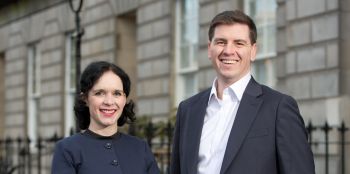Andy Maciver has over 20 years’ experience in politics and public affairs. As well as being a regular commentator on the BBC and STV, he is co-host of Holyrood Sources, the most listened to Scottish politics podcast. He’s been an adviser to Lindsays for a number of years, and here gives us a ringside view of what lies ahead in politics north and south of the border.
If you are in the market for stable politics, I’m afraid you’re not likely to find it in Scotland or the UK any time soon. This is not what businesses, charities and individuals want to hear as they try to navigate legal issues from succession planning to property to employment issues. But it does underline the importance of regularly reviewing all your arrangements on these and other legal and financial matters.
Westminster
Down at Westminster, Sir Keir Starmer’s government has experienced continuing turbulence and negative press and poll ratings. Resignations, sacking and scandals were not expected to be a key feature of the Starmer government, but they certainly were this summer, most notably in the cases of the Deputy Prime Minister Angela Rayner and the US Ambassador Lord Mandelson.
Meanwhile, scrutiny of the under-pressure Chancellor will only intensify as the Autumn Budget draws closer. Many in the government would like to spend more money in the upcoming Budget, to try to attract back some voters. However, the Labour manifesto’s ‘non-negotiable’ fiscal rules and the economy’s on-off growth performance, leave the Chancellor with little wriggle room and plenty of scope to disappoint colleagues, commentators and voters.
Meanwhile, Nigel Farage’s popularity continued to grow over the summer. At the time of writing, his Reform UK party had led around 100 opinion polls in a row and a number of high-profile Conservatives had defected to it. Many people were even asserting that if, for any reason, a snap General Election was held he had a good chance of being Prime Minister.
Holyrood
Here in the Scottish Parliament, we know we are getting an election next May. For a while, last year, it looked as though the SNP’s long period in government would end, but Labour’s difficulties at Westminster have also impacted its Scottish operation.
As I write this, the SNP are odds-on to win again and make it to 25 years in office. However, its popularity level is still well below where it was at the last Scottish Parliament election in 2021.
That calls into question John Swinney’s stated strategy of winning a Holyrood majority to force another independence referendum. For my money, he knows that is unlikely to happen, but is playing a longer game based around Nigel Farage causing chaos at Westminster and driving Scots into the arms of independence.
He may be right - polling suggests that nearly 60% of Scots would vote for independence if Nigel Farage was UK Prime Minister.
The rising popularity of Reform UK may impact Holyrood too. Some polls have predicted the party may come second to the SNP, and if the SNP also declines as predicted, an agreement with Labour to hold onto office may go from being unthinkable to necessary.
At the very least, it looks as though the SNP leadership will need to rely on the Liberal Democrats, or repeat its previous arrangement with the Greens, which caused significant controversy last time.
Summary
Politics impacts the economy, and understandably both people and business are frustrated at the negative impacts of poor politics and poor government.
I’d love to give you some reason for optimism, but I think we can expect more chaos before the calm. But as many articles in this issue demonstrate, there are still ways you can plan for your business and your family, even in uncertain times.







